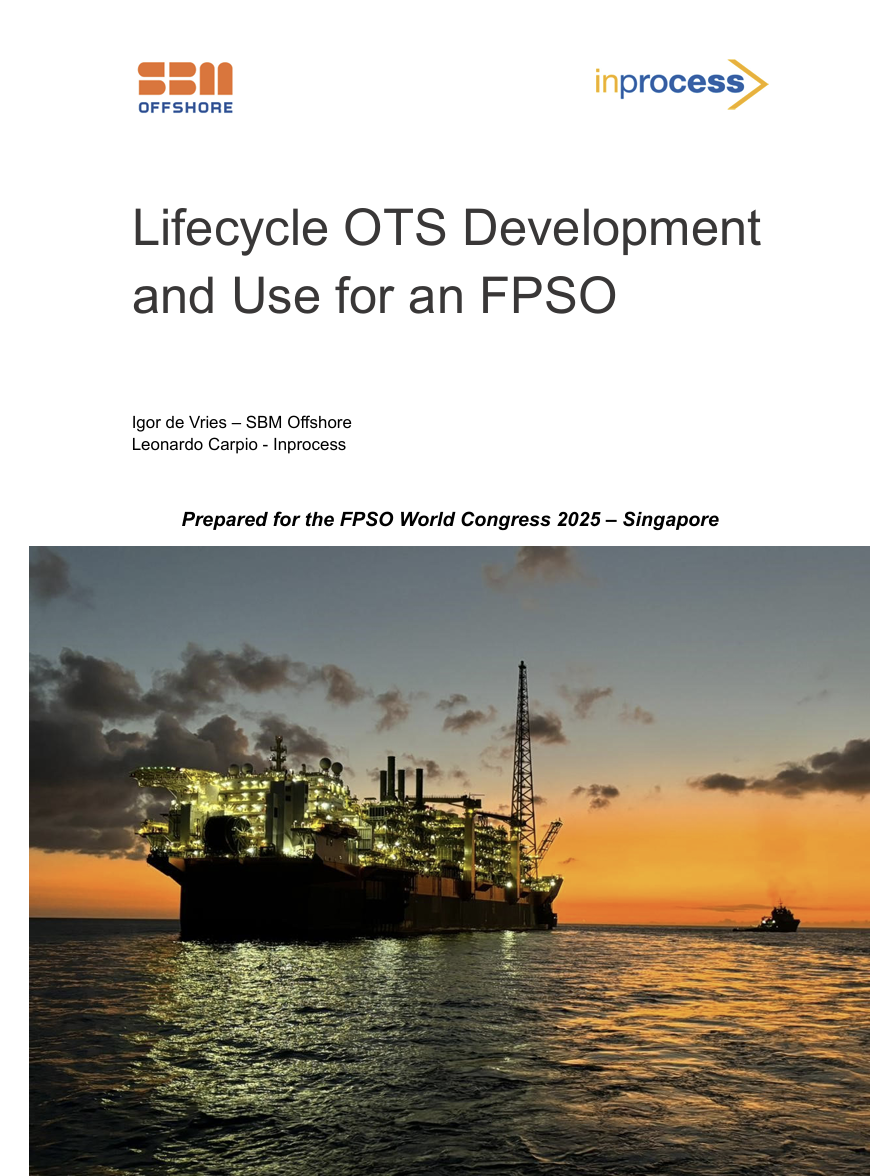Articles & Reports

Lifecycle OTS Development and Use for an FPSO
Check out the latest report on a case study with SBM Offshore and Inprocess on implementing a lifecycle Operator Training Simulator (OTS) on an FPSO project to both verify the Integrated Control and Safety System (ICSS) and prepare operators ahead of FPSO start-up. By reusing the high-fidelity dynamic process models from the engineering phase and integrating them with the actual ICSS software, the OTS enabled virtual start-up sessions, early detection of ICSS issues, and realistic operator training sessions in preparation for the First Oil, Flare-out, and water injection start-up. The lifecycle approach is considered to have reduced commissioning risks, accelerated key milestones, improved operator readiness and safety. Moreover, it is estimated that the long-term benefits in production performance and emissions reduction outweigh the initial investment.
Download the report to find out more!



